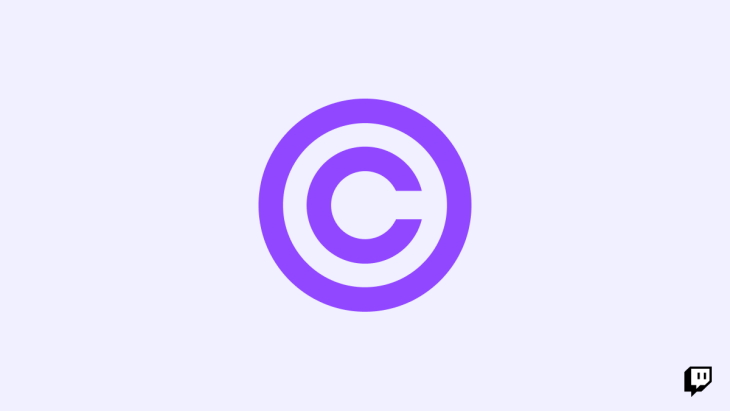
Twitch users have been recommended to mute a game’s music and even all audio to avoid becoming the next in a deluge of DMCA strikes over music.
This comes after Twitch received a mass of DMCA complaints due to music played on numerous Twitch channels. This resulted in them purging thousands of videos with no prior notification, or what videos were deleted and for what piece of music. Twitch features a system where playbacks on prior streams will mute sections of copywritten music.
In spite of this, an open letter from several US music organizations condemned Twitch and Amazon for allegedly not doing enough to stem the copyright infringement. While some have proposed automated bots and algorythms, they have been spotty at best; with Twitch suspending Herman Li, co-lead guitarist for Dragon Force, for playing his own music during a stream.
Twitch later took to Twitter and their own blog, explaining how they would act regarding copywritten music in the future. They explain that until the start of May 2020, they had received less than 50 music-related DMCA notifications each year.
After this however, this ballooned to “thousands of DMCA notifications each week that targeted creators’ archives, mostly for snippets of tracks in years-old Clips.” 99% of these were cases where streamers had music playing in the background of streams.
Stating that they “continue to receive large batches of notifications, and we don’t expect that to slow down,” Twitch reminded its users to not play copywritten music during their streams, and that they should review their VODs of older streams and Clips, and delete any that contain such music.
Due to the large volume of complaints and how “we understood VODs and Clips from years ago may not necessarily reflect your current approach to music,” Twitch have also “paused” giving strikes based on these DMCA strikes. Twitch also promise to provide more information to its users in the future when struck with a DMCA claim, and develop tools for the streamer to better deal with it.
Users found Twitch’s response insulting. Many claimed that users can still get DMCA strikes after deleting content [1, 2], inconsistent applications of who is banned, deleted streams not being fully removed, and Twitch essentially shifting blame onto users when they had previously stated they would not be struck by DMCA claims. They also condemned Twitch’s lack of communication and slow action.
Other users pointed out that how games with licenced music can cause issues with DMCA strikes, and asked what they were expected to do. In one reply, Twitch Support kicked the hornet’s nest by recommending users mute the in-game music, or even all game audio.
“[Hand waving emoji] Hey there, thanks for reaching out. We recommend reading through any game’s EULA, and utilizing any option to turn music off if the game includes that option, or mute the game audio.”
Users were outraged, stating the solution would ruin the enjoyment for many viewers and streamers, would still be susceptible to false copyright, and demanding Twitch defend those who provide content for the platform.
Twitch’s early days were shaky as many were unsure on the legality of streaming game footage, and whether it fell under fair use. As the platform and popularity of streaming grew, the question soon faded away. Nonetheless, DMCA claims over audio- even when genuine- cause a myriad of issues.
As some games sell their soundtracks, this means the rights holder who produced the game’s soundtrack could issue a DMCA strike for the same music being played in game; even if they played no part in the game’s publishing or development. It would also make any and all rhythm music games- such as Beat Saber- far too risky to play.
Games based on the real world using licenced music, such as the Grand Theft Auto series, would also be at risk. A subset of streamers also stream real life events, and as such even passing by a person or building playing copywritten music could bring a DMCA strike.
Image: Twitter